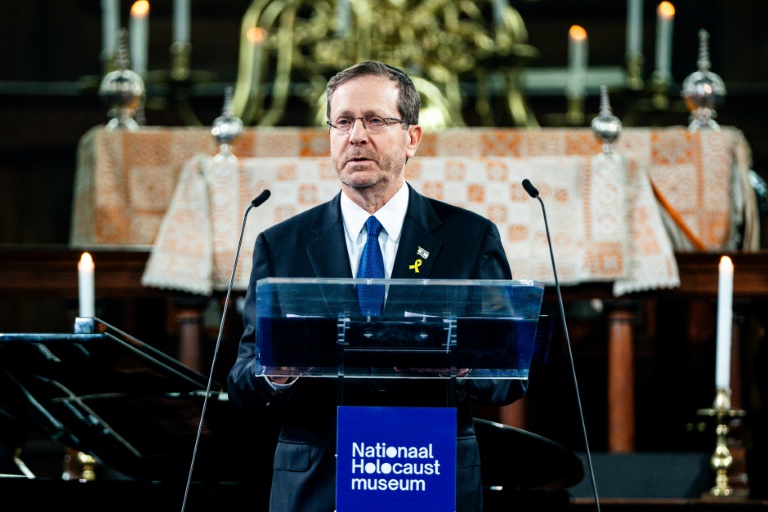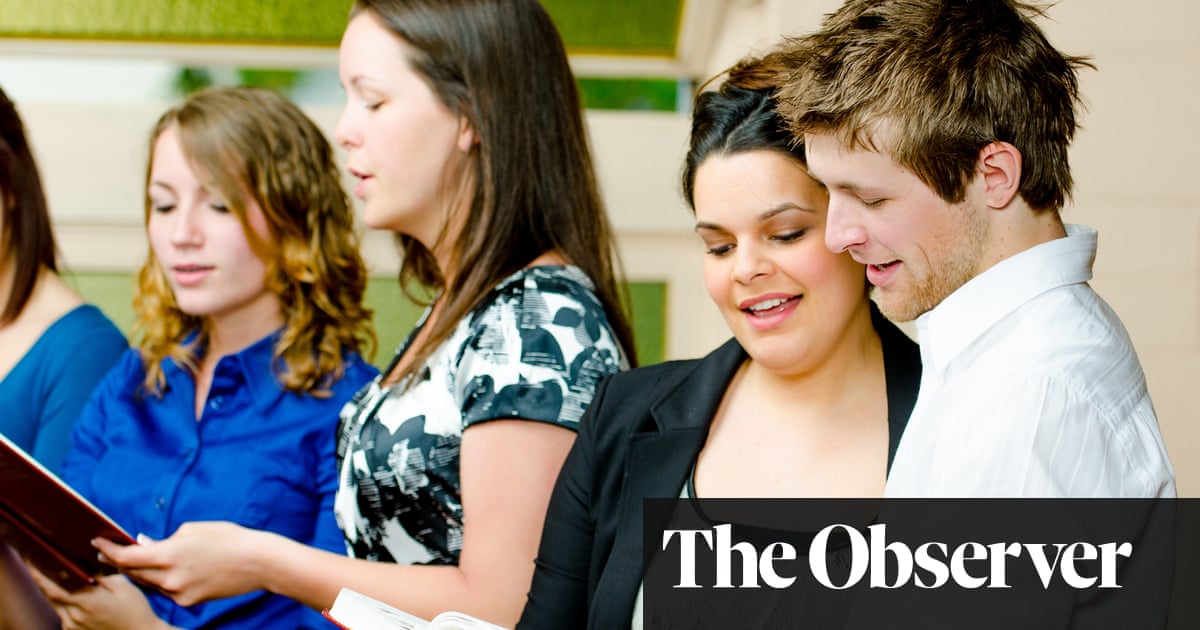Dutch King Willem-Alexander officially opened the country’s first Holocaust Museum Sunday, as demonstrators angry at Israel’s military campaign in Gaza protested against the Israeli president, who also addressed the ceremony.
“This museum shows us what devastating consequences anti-Semitism can have,” said the king at a solemn gathering at a nearby synagogue, attended also by Dutch Holocaust survivors.
Israeli President Isaac Herzog said the museum sent “a clear and powerful statement: remember, remember the horrors born of hatred, anti-Semitism and racism and never again allow them to flourish.”
“Unfortunately never again is now, right now. Because right now, hatred and anti-Semitism are flourishing worldwide and we must fight it together,” added the president.
He called for the “immediate and safe return” of hostages taken by Hamas in the October 7 attacks and urged the congregation to “pray for peace”.
Less than one kilometre away were protests against Herzog’s appearance at the ceremonies, organised by, among others, Jewish groups urging an immediate ceasefire in Gaza.
Hundreds gathered waving Palestinian flags and banners, and shouting “Never Again Is Now,” a reference to their belief Israel is committing genocide in the Palestinian territory.
They booed and shouted slogans as the dignitaries arrived at the museum.
“There’s only one place for him here and that’s the ICC,” said Estelle Jilissen, a 25-year-old consultant, referring to the International Criminal Court that tries suspected war criminals.
Protesters had hung signs on lampposts reading: “Detour to International Criminal Court” along the route.
“A lot of Jewish people are against his arrival here as well because the pain of their ancestors, the suffering of their ancestors, is being smeared by this president’s arrival,” said Jilissen.
The Gaza war started when Hamas militants launched their unprecedented October 7 attack on Israel that resulted in about 1,160 deaths, mostly civilians, according to Israeli official figures.
Militants also took 250 hostages, dozens of whom were released during a week-long truce in November. Israel believes 99 hostages remain alive and that 31 have died.
Israel’s withering bombardment and ground offensive have killed 31,045 people, mostly women and children, according to the health ministry in Hamas-run Gaza.
The Holocaust Museum, in the heart of the Jewish quarter of Amsterdam, will open to the public on Monday — almost 80 years after World War II ended.
Striped Auschwitz uniforms, buttons taken from clothes stripped on arrival at the Sobibor death camp, poignant letters and photos: the museum displays 2,500 objects, many never seen before in public.
Before the war and the Nazi occupation, the Netherlands was home to a vibrant Jewish community of around 140,000 people, mainly concentrated in Amsterdam.
By the time the Holocaust was over, an estimated 75 percent — 102,000 people — had been murdered.
The museum’s opening comes at a time of rising anti-Semitism in the Netherlands.
The number of anti-Semitic incidents doubled in 2023, the government’s national coordinator for combating anti-Semitism reported last month.
In an attack that made headlines across the country, unknown vandals recently daubed swastikas on a synagogue in the southern town of Middelburg.
Amsterdam has allocated 900,000 euros ($976,000) for security for the museum, which has large boulders outside it to prevent a car ramming attack.







